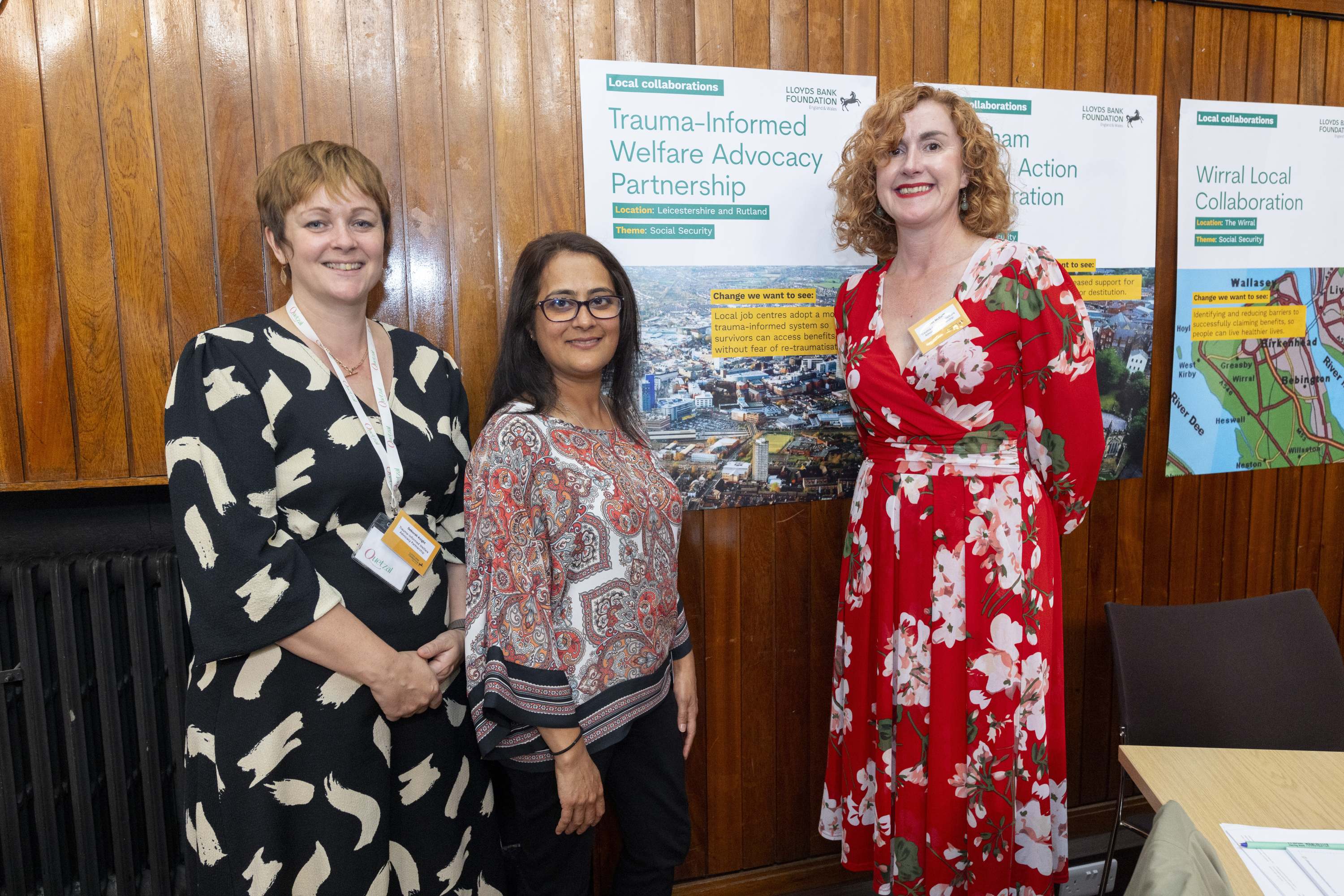What is your influencing focus and what do you want to achieve locally? Why have you decided to focus on this issue?
The focus of our influencing project is to push for a more trauma informed social security system, initially in Leicester, with the hope that this model can be rolled out nationally eventually. The DWP has previously committed to working towards a trauma informed approach but the people accessing our services tell us this is not their experience of the system so far. We’d like to see our local job centre partner with the voluntary sector to provide trauma informed support for those seeking work, which takes into account the individual needs of trauma survivors.
We know that the social security system can be particularly difficult to access for people living with the impact of trauma and these additional barriers keep them in poverty so shifting towards an individualised approach which provides a package of support rather than the current punitive system could make a fundamental difference to the lives of trauma survivors.
How has being part of the Foundation’s Local Collaborations programme benefitted you?
Funding for this important work, which is hard to quantify, is difficult to secure. The commitment of the Foundation to empowering small charities to influence change is so refreshing and enables us to do work we otherwise wouldn’t be able to.
Because it is unusual for us to be able to explore this kind of project, influencing work is a new area for the partners. Therefore, the support we receive from the Foundation has been vital to help us make the most of the opportunity. Meeting with other collaborations running similar projects around the country has been inspirational and helped us to focus our efforts in key areas. Alongside this, the learning sessions provided have enabled us to grow our skills and confidence.
What progress have you made so far?
So far, the project has focused on gathering information from people we support with lived experience of the social security system. By starting with listening, we’ve been able to build an understanding of the key barriers and issues facing trauma survivors as they try to access support from the social security system. For example, trauma symptoms like PTSD, anxiety, or depression can make it difficult for people to navigate the complex benefits system or attend appointments. This means our influencing efforts can be focused in the areas that will have the most impact.
We’ve been able to meet with local councillors, MPs and people with lived experience to begin to gather support for the changes we’re advocating for and identify the areas we need to focus on. We’ve learnt that influencing work can sometimes feel slow in the early stages. Progress can be hard to measure initially, as much of the work focuses on building awareness, trust, and laying the groundwork for long-term impact rather than producing immediate, visible results.
What have been some of the challenges and how have you overcome them?
The main challenge we’ve faced has been gaining access to the right people. It’s all too easy to ignore an email and without a personal introduction it can be hard to get through the front door and even have the initial conversations. We’ve found we’ve had to go back to basics and build networks of relationships that can link us to the right people.
It’s also been about building trust. People can often become defensive when you’re pushing for change, so we’ve had to show the ways in which we’re aligned and working for the same outcomes in order to start positive dialogue. This is all an ongoing process which is ever evolving, we’re learning all the time about the best ways to make approaches and how to advocate strongly without alienating the people with the ability to make the change we’d like to see.
What’s next for your collaboration?
Now that our collaboration has gathered insights from people with lived experience and begun building relationships with those in a position to make changes, the next step is to translate these connections into meaningful action.
Going forward we will focus on refining our collective vision and developing a clear, evidence-based case for the changes we are advocating for, ensuring the voices of those directly impacted remain central. We want to strengthen our messaging to resonate with both policymakers and the public, and identify key moments to influence decision-making processes, such as consultations, debates, or upcoming policy reviews. At the same time, we’ll grow our coalition’s visibility and credibility by sharing stories, data, and successes. By balancing persistence with adaptability, we hope our collaboration can turn its groundwork into measurable progress toward a fairer benefits system.
What advice would you give to other charities considering applying to the Local Collaborations programme?
Collaboration is key, so look for like-minded organisations who can amplify your impact, to work with. We’ve really benefited from working with charities we’ve not collaborated with before. We’ve previously tended to work with similar charities, all working in the sexual violence sector, so branching out has given us a different perspective and extended our network beyond charities working in the same space.
Building relationships with decision-makers takes time and persistence, so approach this work with patience and a clear, compelling case for change. Be prepared for slow progress, celebrate small wins along the way, and remember that real, systemic change requires sustained effort over the long term so plan your timeline accordingly.






